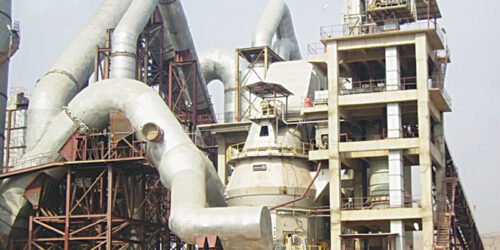The Punjab government has regulated the cement sector and issued 22 no-objection certificates (NOCs) for the setting up of new cement factories while ensuring that no more unit is established in the areas declared “negative”.
A study earlier conducted declared areas around Kallar Kahar as “negative” for the setting up of cement factories as the underground water had fast depleted.
Mines and Minerals Department Secretary Amir Ijaz Akbar told Dawn the salt range had been found as an ideal location for the setting up of cement factories as almost all raw material including limestone, clay and gypsum potential was available.
Since the Punjab government had lifted restrictions on cement industries for the development of construction sector, the revenue collection by the mines and minerals department surged to Rs10.19 billion in FY21 from just Rs4bn a couple of years ago. Besides, Mr Akbar said, Rs40bn was being collected annually under the head of federal excise duty.
Answering a question, the mines secretary said that the NOCs were being given for the establishment of cement factories after complete environment impact assessment and involved all line departments including industries and irrigation departments for all around permission.
Meanwhile, Chief Minister Usman Buzdar says the new cement factories will generate jobs for millions of people and result in uplifting and ensure economic development in the backward areas.
Mr Buzdar stated that the steps taken by the government for the development of salt and coal industries were also yielding positive results. He said the Punjab Mineral Development Corporation had collected Rs1.64bn. He said as many as 21 rock salt exploration licences had been issued for the promotion of the salt industry. The department’s production capacity has been increased with the launch of four coal and eight salt mines.
The chief minister says the ban on coal mining has been lifted and transparency ensured in the public auction of 20 blocks of coal. The Mineral Cadastral System has been introduced to provide timely information.
The chief minister says e-Fighting & Office Automation System has been implemented with the cooperation of PITB, while Human Resource Management Information System (HRMIS) has also been introduced in the mines and minerals department.
The mines and minerals department has established a state-of-the-art in-service training academy in the Punjab School of Mines, Katas, wherein some 3,000 workers have been provided professional training.
Similarly, the Mine Sample Testing Laboratory, Khushab, was being restored with better facilities. New offices of Deputy Director Mines and Minerals have been set up at Khushab, and Mianwali.
The chief minister says steps are being taken for ensuring welfare, betterment and safety of miners across Punjab adding that the inspection system has been digitalised to ensure the safety of miners. A rescue squad has been set up at Sargodha Bridge 111 to deal with emergencies and untoward incident during mining.
Scholarships for miners’ children have been increased by 300 per cent and Rs80.5 million has been distributed. A special grant of Rs6,000 per month is being given to the disabled miners. A 10-bed minesabour welfare hospital has been set up in Makarwal, Mianwali.
Six mines labour welfare dispensaries are also being set up in the remote areas for providing medical facilities to the miners. A mobile health unit has also been set up for the miners in Chakwal district. Three water supply schemes and RO plants are being set up in Basti Daher, Makarwala and Chowasidan Shah.





